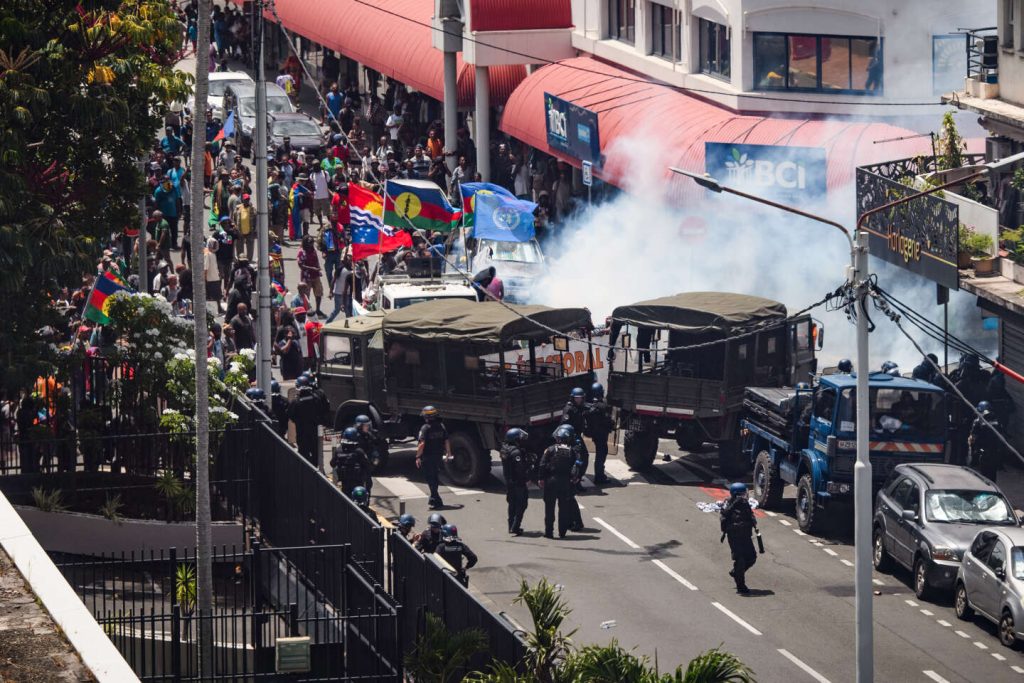Tensions between protesters and gendarmes escalated during the visit of Justice Minister Eric Dupond-Moretti and Interior Minister Gérald Darmanin to Nouméa on February 21, 2024. Two large processions, one representing the pro-independence movement and the other representing non-independence supporters, were expected to gather 20,000 demonstrators each in Nouméa on April 13. The political scene in New Caledonia is fraught with tension as the crisis in the nickel industry worsens, with mines in the north facing closure due to disputes between stakeholders. The upcoming provincial elections at the end of 2024 are putting pressure on political actors, with loyalists boycotting the New Caledonia Congress and the FLNKS rejecting a constitutional law project aimed at expanding the electoral body.
Nouméa will see a larger presence of security forces than Marseille over the weekend, with the Ministry of Interior sending two squadrons of gendarmes as reinforcements. Recent clashes have occurred in various parts of the territory, including in the Mont-Dore municipality near the Kanak tribe of Saint-Louis, where security forces allegedly fired five hundred grenades on April 8. The atmosphere is tense, with concerns about the future and impatience fueling the unrest. The situation is volatile, and divisions within the population are deepening as political stakes continue to rise.
Following a symbolic act by the FLNKS activists on April 4, where a tamioc (a Kanak hatchet) was placed on an urn during a press conference to protest against “the Macron method” in ongoing political discussions, tensions have been rising. This gesture harks back to the actions of Eloi Machoro in 1984, who broke an urn to protest against a proposed autonomy statute and called for a boycott of territorial elections. The situation is reminiscent of past events that have torn the community apart, reflecting the ongoing struggle for self-governance and independence in New Caledonia.
Member of the moderate right-wing party Calédonie ensemble, Philippe Dunoyer, reflects on the deepening divisions within the community. He criticizes the hardline stance adopted by local right-wing figures under the influence of loyalists, including former Secretary of State Sonia Backès and other members of the presidential majority. Dunoyer expresses concern over the lack of coordination in facing the escalating tensions and doubts the ability to control thousands of individuals in such a volatile environment. The continued polarization of views and actions within the political landscape in New Caledonia is leading to further fragmentation and unrest.
As the political situation in New Caledonia continues to deteriorate, concerns about the future stability of the region grow. The upcoming provincial elections, combined with the crisis in the nickel industry and historical tensions between different groups in the community, are creating a volatile environment. The deep-rooted divisions and lack of consensus among political actors are exacerbating the situation, leading to clashes between protesters and security forces. The need for dialogue and peaceful resolution of conflicts is becoming increasingly urgent to prevent further escalation of violence and instability in the region.


